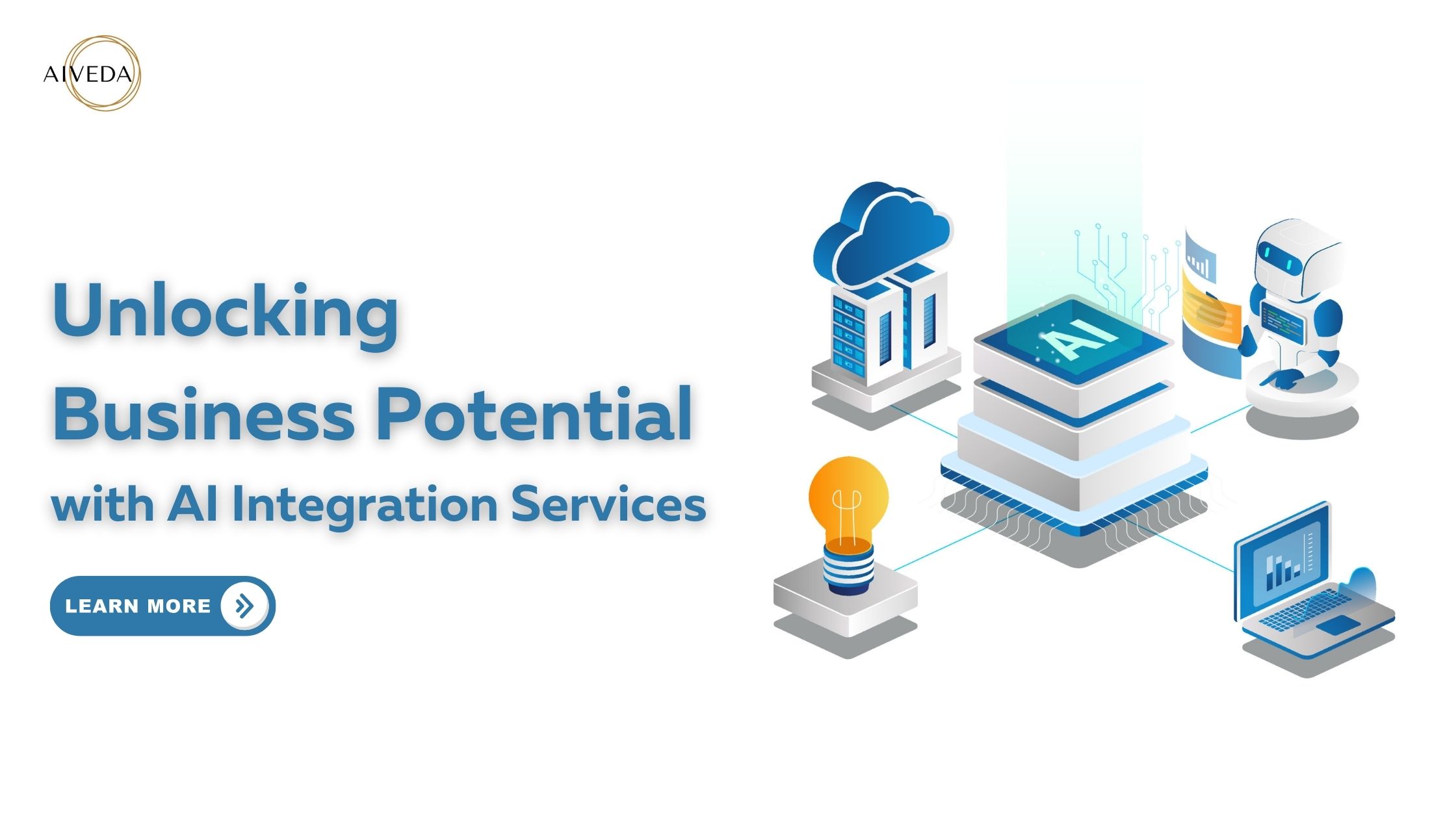
In today’s rapidly evolving technological landscape, Artificial Intelligence (AI) is no longer a futuristic concept but a tangible reality driving significant changes across various industries. AI integration services play a crucial role in helping businesses harness the power of AI to enhance efficiency, drive growth, and stay competitive. This blog explores the benefits and applications of AI integration services and provides insights into how your business can leverage AI Consulting services for optimal results.
Key Components:
- Assessment and Strategy: Explore how businesses can develop tailored AI strategies to meet their unique needs and goals.
- Implementation: Learn about the seamless deployment of AI solutions within existing infrastructures and its significance in driving successful integration.
What are AI Integration Services?
AI integration services involve the incorporation of AI technologies into existing business processes, systems, and products. These services encompass a wide range of activities, from strategic planning and implementation to ongoing support and optimization. The goal is to seamlessly integrate AI capabilities to improve operational efficiency, enhance decision-making, and provide a competitive edge.
Key Components of AI Integration Services:
- Assessment and Strategy: Evaluating business needs and developing a tailored AI strategy.
- Implementation: Deploying AI solutions within existing infrastructures.
- Optimization: Fine-tuning AI models and processes for maximum efficiency.
- Support and Maintenance: Providing ongoing support to ensure AI systems run smoothly.
Benefits of AI Integration Services
1. Enhanced Operational Efficiency
One of the primary benefits of AI integration is the significant improvement in operational efficiency. AI can automate repetitive tasks, streamline workflows, and reduce human error, leading to increased productivity.
- Example: In manufacturing, AI-powered predictive maintenance can reduce downtime by predicting equipment failures before they occur, ensuring continuous operations.
2. Improved Decision-Making
AI systems can analyze vast amounts of data to provide insights that inform better decision-making. This allows businesses to make data-driven decisions quickly and accurately.
- Example: Retail companies can use AI to analyze customer data and predict trends, helping them make informed decisions about inventory and marketing strategies.
3. Personalized Customer Experiences
AI can enhance customer experiences by providing personalized interactions and recommendations. This can lead to higher customer satisfaction and loyalty.
- Example: E-commerce platforms use AI to recommend products based on a customer’s browsing history and preferences, enhancing the shopping experience.
4. Cost Savings
By automating processes and optimizing resource utilization, AI integration can lead to substantial cost savings. This is particularly beneficial for businesses looking to improve their bottom line.
- Example: Financial institutions can use AI to automate fraud detection processes, reducing the costs associated with manual monitoring and investigation.
5. Competitive Advantage
Businesses that effectively integrate AI into their operations can gain a significant competitive advantage. AI enables companies to innovate faster, respond to market changes more effectively, and deliver superior products and services.
- Example: Tech companies that leverage AI for product development can bring innovative solutions to market more quickly than their competitors.
Best Practices for AI Integration
1. Start with a Clear Strategy
A clear and well-defined AI strategy is crucial for successful integration. This involves understanding your business goals, identifying the areas where AI can add value, and developing a roadmap for implementation.
- Tip: Conduct a thorough assessment of your business processes to identify opportunities for AI integration.
2. Focus on Data Quality
High-quality data is the foundation of effective AI systems. Ensure that your data is clean, accurate, and well-organized before integrating AI solutions.
- Tip: Implement robust data management practices to maintain data quality and integrity.
3. Choose the Right AI Tools
Selecting the appropriate AI tools and technologies is essential for successful integration. Consider factors such as scalability, compatibility with existing systems, and ease of use.
- Tip: Work with AI consultants to identify the best tools and technologies for your specific needs.
4. Foster a Culture of Innovation
Encouraging a culture of innovation and continuous learning can help your team adapt to new AI technologies and processes. Provide training and support to ensure that your employees are comfortable using AI tools.
- Tip: Organize workshops and training sessions to keep your team updated on the latest AI developments.
5. Monitor and Optimize
AI integration is an ongoing process that requires continuous monitoring and optimization. Regularly assess the performance of your AI systems and make necessary adjustments to improve efficiency and effectiveness.
- Tip: Use performance metrics and feedback loops to refine your AI models and processes.
Applications of AI Integration Services
1. Healthcare
AI integration in healthcare can lead to improved patient outcomes, streamlined operations, and reduced costs. Applications include predictive analytics for patient care, automated diagnostic tools, and personalized treatment plans.
- Example: AI-powered diagnostic tools can analyze medical images to detect diseases such as cancer at an early stage, improving treatment outcomes.
2. Finance
In the financial sector, AI can enhance fraud detection, automate trading, and provide personalized financial advice. This leads to increased security, efficiency, and customer satisfaction.
- Example: AI algorithms can monitor transactions in real-time to detect and prevent fraudulent activities, protecting both the institution and its customers.
3. Retail
AI integration in retail can optimize inventory management, enhance customer service, and improve sales forecasting. This results in a better shopping experience and increased profitability.
- Example: AI-powered chatbots can assist customers with their inquiries, providing quick and accurate responses and freeing up human agents for more complex tasks.
4. Manufacturing
AI can revolutionize manufacturing processes through predictive maintenance, quality control, and supply chain optimization. This leads to higher productivity, reduced downtime, and cost savings.
- Example: AI systems can analyze production data to identify defects and ensure quality control, reducing waste and improving product quality.
Conclusion
AI integration services offer a transformative potential for businesses across various industries. By leveraging AI, companies can enhance operational efficiency, improve decision-making, personalize customer experiences, and gain a competitive edge. Embrace AI integration to unlock new levels of productivity and innovation, and stay ahead in the competitive landscape of the digital age.